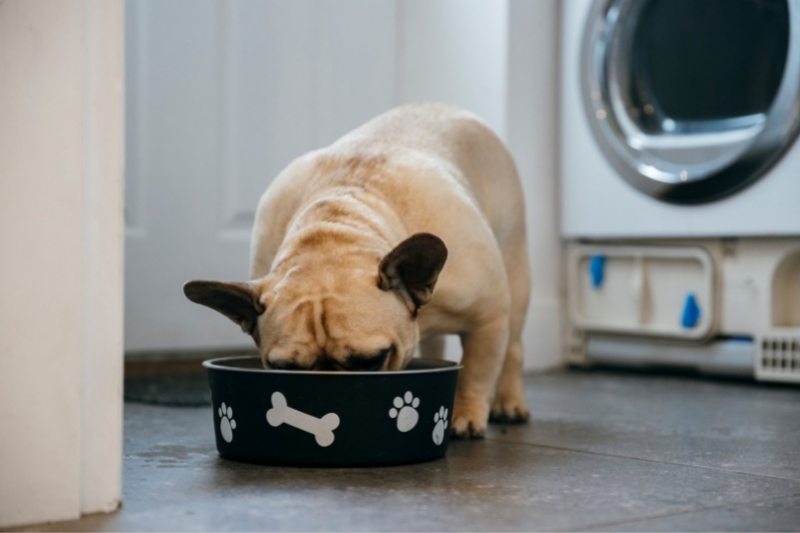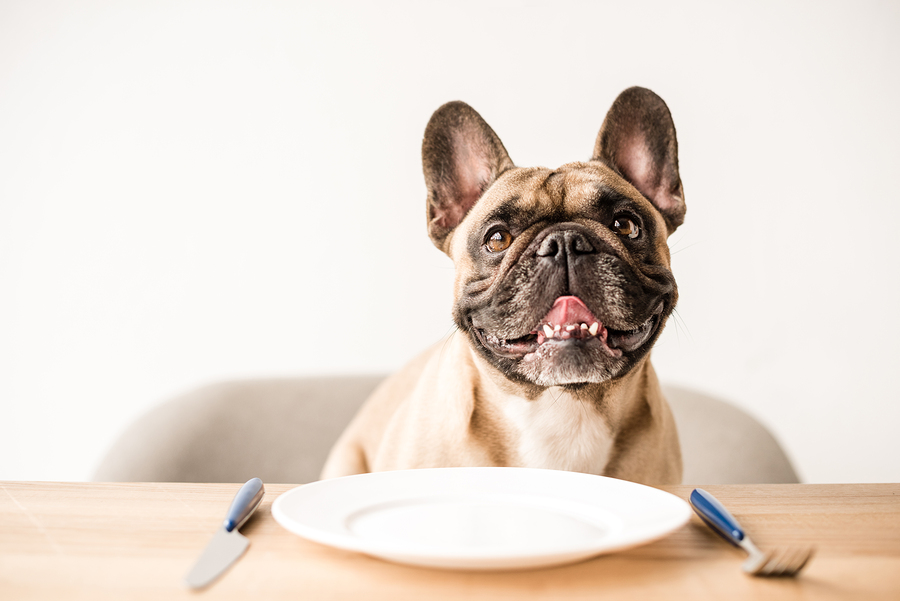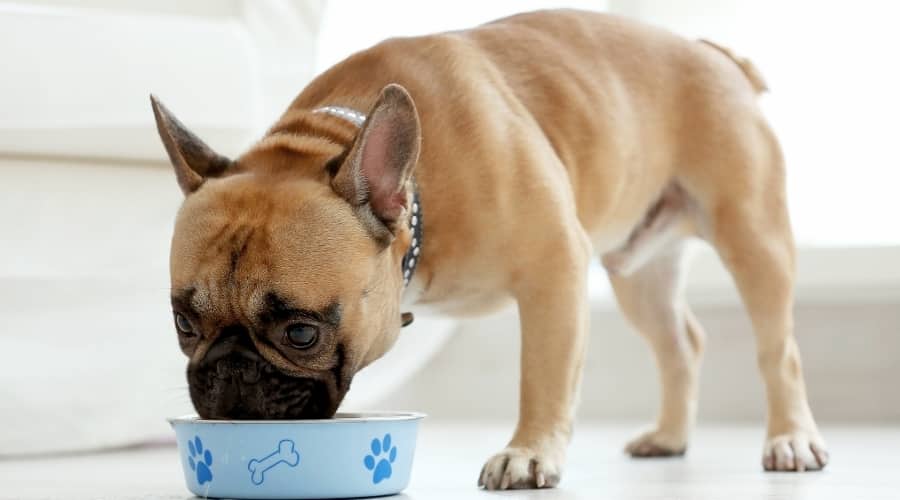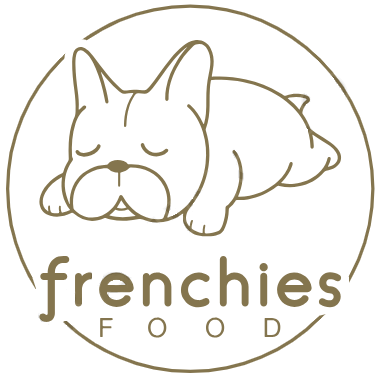
Introduction
French Bulldog owners often inquire about the appropriate quantity of food their pets should consume. Understanding the essential nutrition for these cherished companions is key to providing the right amount of nourishment, which supports their growth, sustains energy levels, and aids in preventing various health issues. Thus, determining the correct portion size is essential to ensuring their long-term fitness, happiness, and overall well-being. So, the question arises: How much should a French Bulldog eat ?
Understanding French Bulldog Nutrition
Macronutrient Breakdown
A balanced diet for a French bulldog should include the following proportions of macronutrients:
- Protein:French bulldogs need a protein-rich diet to maintain their muscles and overall health. It is recommended to have a protein level between 20-30% in their meals.
- Fat:Essential fats are important for sustaining energy levels and promoting a healthy coat. A fat content of 10-15% is generally appropriate.
- Carbohydrates:While not as essential as protein and fat, carbohydrates provide necessary energy. They should make up around 30-50% of the diet.
Factors Influencing Dietary Needs
- Size and Weight:French bulldogs are compact dogs that fall within the small to medium size range, yet they possess a robust build.
- Age:The dietary requirements of French bulldogs evolve as they progress from puppyhood to adulthood and eventually reach their senior years.
- Activity Level:French bulldogs with higher levels of activity may necessitate increased calorie consumption, while those with lower activity levels might require fewer calories.
- Health Conditions:Specific health issues could prompt adjustments to the dog’s nutritional regimen.
Caloric Needs and Portion Sizes
French bulldogs are a small breed that typically weighs between 16 to 28 pounds. Their calorie needs can vary based on factors like age, weight, and activity level. On average, an adult French bulldog requires about 25-30 calories per pound of body weight daily.
- Puppies (2-6 months):Puppies need more calories for their rapid growth. A French bulldog puppy may need around 400-600 calories per day, divided into three to four meals.
- Adults (7 months – 6 years):Adult French bulldogs generally require 500-700 calories per day. It’s best to split this into two meals to prevent bloating and aid digestion.
- Seniors (7 years and older):Senior Frenchies have a slower metabolism and may need approximately 400-600 calories per day, depending on their activity level and overall health.
How much should i feed my french bulldog

Determining the correct amount of food for a French bulldog involves taking into account factors such as age, weight, and activity level. Here is a general guide to help you determine the right portion sizes for your furry friend.
Here is a more detailed breakdown of the recommended feeding guidelines for French bulldogs based on age, weight range, activity level, and daily food amount:
- Puppy (2-6 months):For puppies weighing 5-14 lbs (2.3-6.4 kg) with high activity levels, feed them 1.5 – 2.5 cups (340-570 grams) daily.
- Adult (1-7 years):For adults weighing 16-28 lbs (7.3-12.7 kg) with moderate activity levels, feed them 1 – 2 cups (230-460 grams) daily.
- Senior (7+ years):For seniors weighing 16-28 lbs (7.3-12.7 kg) with low to moderate activity levels, feed them 0.75 – 1.5 cups (170-340 grams) daily.
These amounts are approximate and may require adjustments depending on metabolism, activity level, and individual health needs. Keep an eye on your dog’s weight regularly and adjust their food intake accordingly. For personalized advice tailored to your French bulldog’s specific requirements, consult your vet.
Frequency of Feeding
Establishing the right feeding routine for your French bulldog is essential to maintain their digestive and overall health. Below is a detailed guide on how often you should feed your French bulldog based on their age and specific needs:…
Puppies (2-6 months)
French bulldog puppies are going through a period of rapid growth and have higher energy requirements. Due to their small stomachs, they need to be fed more frequently to evenly distribute their calorie intake throughout the day and prevent overeating, which can lead to digestive issues.
- Suggested Feeding Frequency: Feed them 3-4 times a day.
- Meal Timing: Space out meals every 4-5 hours.
- Managing Portions: Use the feeding instructions to measure the correct amount and adjust as necessary based on the puppy’s growth and activity level.
- Transitioning to Adult Food: Start with puppy-specific formulas and gradually switch to adult food around 6 months old for a smooth transition and to avoid digestive problems.
Adults (7 months – 6 years)
Adult French bulldogs have more stable energy levels compared to puppies, but it is still crucial to stick to a regular feeding schedule. This helps regulate their metabolism and avoids issues like hypoglycemia and obesity.
- Recommended Feeding Frequency: Provide 2 meals daily.
- Meal Timing: Give one meal in the morning and another in the evening.
- Portion Control: Follow the recommended daily food amount based on their weight and activity level, typically around 1-2 cups per day.
- Consistency: Establish a consistent feeding routine to support a healthy metabolism and prevent behavioral problems related to hunger.
Seniors (7+ years)
As French bulldogs age, their metabolism slows down and they may face age-related health issues that necessitate dietary adjustments. It is crucial to provide senior dogs with a balanced diet that meets their nutritional needs without overburdening their digestive system.
- Suggested Feeding Routine: Opt for two smaller meals per day.
- Meal Timing: Serve meals in the morning and evening, with an optional light, nutritious snack in between if needed.
- Monitoring Portions: Adapt food quantities to accommodate their decreased calorie requirements and monitor their weight and overall health.
- Specific Considerations: Older dogs may benefit from softer food if they have dental problems, and diets with increased fiber content to support proper digestion.
General Tips for Feeding Frequency
- Consistency: Maintaining a regular feeding routine is crucial for your dog’s well-being. This can aid in better digestion and create a sense of predictability for your pet.
- Monitoring: Regularly check your dog’s weight and body condition. Adjust their meals as recommended by your veterinarian to ensure they are receiving the correct portion of food.
- Hydration: Ensure your dog always has access to fresh water, especially when consuming dry food, to support digestion and overall health.
- Observation: Stay alert for any signs of overeating or undereating, such as sudden weight changes, decreased energy levels, or searching for food outside of meal times. These could signal the need to modify feeding amounts or frequency.
By adhering to these feeding tips, you can help your French bulldog maintain optimal digestive health, consistent energy levels, and overall wellness. Seek personalized guidance from your vet for tailored care based on your dog’s individual requirements.
Signs of Overfeeding or Underfeeding

Being able to recognize the signs of overfeeding or underfeeding is essential for maintaining the health and well-being of your French bulldog. Both scenarios can lead to different health issues that could impact your cherished pet’s overall wellness. This article will detail the common indicators and outcomes of both overfeeding and underfeeding.
Signs of Overfeeding
Overfeeding French bulldogs can lead to obesity and various health issues. It is important to monitor their food intake and portion sizes to prevent excessive weight gain.
- Weight Gain: One sign of overfeeding is an increase in body weight, noticeable by a less defined waistline and overall larger body size.
- Lethargy: Overweight dogs may show reduced activity levels. If your usually energetic dog seems lethargic, it could be due to carrying extra weight.
- Heavy Breathing: Excess weight can strain a dog’s respiratory system, causing heavy breathing even when not active.
- Joint Problems: The added weight can cause joint issues and worsen conditions like hip dysplasia.
- Frequent Bloating and Gas: Overfeeding can result in digestive discomfort, leading to bloating and increased gas.
- Decreased Endurance: An overweight dog may struggle with stamina, becoming tired more quickly during walks or playtime.
- Vomiting : Many dog owners often wonder ” why is my frenchie throwing up ” and “is vomiting a sign of overfeeding the dog?” the answer is: Vomiting in French Bulldogs might be a sign of overeating, among other possible reasons. Monitoring their food intake is crucial to ensure they don’t eat excessively, which can lead to digestive issues and vomiting. Regulating their portion sizes and feeding schedule can help prevent this problem. If vomiting persists despite dietary adjustments, consulting a veterinarian is recommended to investigate any potential underlying health issues.
Signs of Underfeeding
Not providing sufficient food for your dog can be just as harmful as overfeeding, leading to malnutrition and a lack of vital nutrients necessary for their well-being.
- Weight Loss: A noticeable decrease in weight could indicate that your dog is not receiving enough food.
- Lack of Energy: Underfed dogs may exhibit signs of fatigue and disinterest in activities like playing or exercising.
- Visible Ribs and Spine: If your French bulldog’s ribs, spine, or hip bones are easily visible, they may be underweight.
- Poor Coat Condition: Dogs that are not fed enough often have lackluster, dry coats and may experience increased shedding due to a deficiency in essential nutrients.
- Increased Hunger: Dogs lacking adequate food may appear constantly hungry and may engage in scavenging or begging behaviors more frequently.
- Behavioral Changes: Insufficient nutrition can result in dogs becoming irritable or anxious.
Monitoring and Adjustments
In order to keep your French bulldog at a healthy weight, it is essential to regularly monitor their body condition and adjust their diet as needed.
- Regular Weight Checks: Checking your dog’s weight often will help you notice any significant changes. Work with your veterinarian to establish the ideal weight range for your Frenchie.
- Body Condition Scoring (BCS): Using a BCS chart can help you determine if your dog is at a healthy weight. This scoring system evaluates your dog’s body condition from being too thin to overweight.
- Adjusting Diet: Depending on your dog’s weight and activity levels, consider changing portion sizes or the type of food given. For overweight dogs, reduce calorie intake and increase exercise. For underweight dogs, think about offering more frequent meals with higher calories.
- Seek Professional Advice: If you notice signs of overfeeding or underfeeding, consult your vet. They can provide personalized guidance on your dog’s dietary needs.
By staying attentive and taking necessary steps promptly, you can ensure that your French bulldog maintains a balanced diet, keeping their weight and overall health in check.
Special Dietary Considerations
When it comes to managing your French bulldog’s food intake, you might have to make specific changes to cater to particular health problems or situations. Here are some common dietary needs and how to fulfill them effectively.
Allergies and Sensitivities
Numerous French Bulldogs suffer from food allergies and sensitivities, with typical triggers such as beef, chicken, dairy, and grains. It’s vital to pinpoint and remove the specific allergen from your pet’s diet. Consider specialized diets labeled as ” Best food for French Bulldog with skin allergies ” to potentially ease symptoms and enhance skin well-being.
- Opt for Hypoallergenic Diets: Switching to hypoallergenic dog food containing unique proteins like duck or venison while excluding common allergens could be beneficial.
- Try Limited Ingredient Diets: These diets have fewer ingredients, making it easier to identify and avoid the allergen.
- Seek Advice from Your Vet: Before making any significant changes to your dog’s diet, always consult a veterinarian to ensure they are getting the right nutrition.
Weight Management
Keeping your French bulldog at a healthy weight is crucial for their overall health and longevity. Maintaining an appropriate weight can help prevent issues like joint problems and breathing issues.
- Reduced-Calorie Diets: If your dog is overweight, providing them with a diet lower in calories can aid in weight loss without causing hunger.
- Controlling Portions: It’s essential to measure your dog’s food portions to avoid overeating and offer smaller, more frequent meals.
- Physical Activity: Combining a balanced diet with regular exercise is essential for keeping your dog at a healthy weight.
Senior Dogs
As your French bulldog ages, their dietary needs will change. Older dogs typically require fewer calories but need more fiber and specific nutrients to support their aging bodies.
- Senior Dog Food: These specialized diets are designed to meet the nutritional requirements of older dogs, with lower fat and higher fiber content.
- Joint Supplements: Consider adding supplements like glucosamine and chondroitin to promote joint health.
- Hydration: Ensuring that your senior dog drinks an adequate amount of water is crucial, especially if they are consuming dry food.
Puppies

French bulldog puppies need a diet that promotes their healthy growth and development, as their nutritional needs are distinct from those of adult dogs.
- Puppy Formulas: Choose a high-quality puppy food that contains the appropriate levels of proteins, fats, and carbohydrates.
- Regular Feeding: Puppies should be fed more frequently to support their energy levels and assist in their rapid growth.
- Calcium and Phosphorus: Ensure that their diet provides adequate amounts of calcium and phosphorus to encourage strong bone development.
Digestive Issues
If your French bulldog is experiencing digestive issues, modifying their diet can help alleviate their symptoms.
- Opt for Easily Digestible Foods: Choose gentle-on-the-stomach options such as rice and plain cooked chicken.
- Incorporate Probiotics: Introducing probiotic supplements can promote a balanced gut environment and improve digestion.
- Serve Smaller Meals: Providing smaller, more frequent meals can help manage digestive problems and prevent bloating.
By addressing these dietary considerations and adjusting as necessary, you can ensure your French bulldog leads a healthy and happy life. It’s advisable to consult with your veterinarian before making significant dietary changes to ensure they are suitable for your dog’s specific needs.
Hydration Needs
Ensuring your French bulldog stays properly hydrated is crucial for their health.
Tips to help keep your dog hydrated:
- Provide them with fresh water daily.
- Encourage drinking by using a water fountain.
- Mix water into dry food or offer wet food options.
Conclusion
So how much should a french bulldog eat ? The article has answered the above question. The article provides guidance for dog owners on how to determine the appropriate amount of food for their French Bulldog. Ensuring your pet receives the appropriate quantity and quality of food is paramount to their health and happiness. By understanding their dietary needs, following a consistent diet, and being alert to signs of over- or under-feeding, you can contribute to the health and longevity of your Frenchie. me. Seek advice from your veterinarian for personalized nutritional recommendations tailored to your dog’s requirements. Understanding the correct diet for your French Bulldog is instrumental in helping him maintain his ideal weight and ensure a satisfying life. Providing adequate nutrition is key in ensuring the overall health and happiness of your French Bulldog throughout its lifespan.
